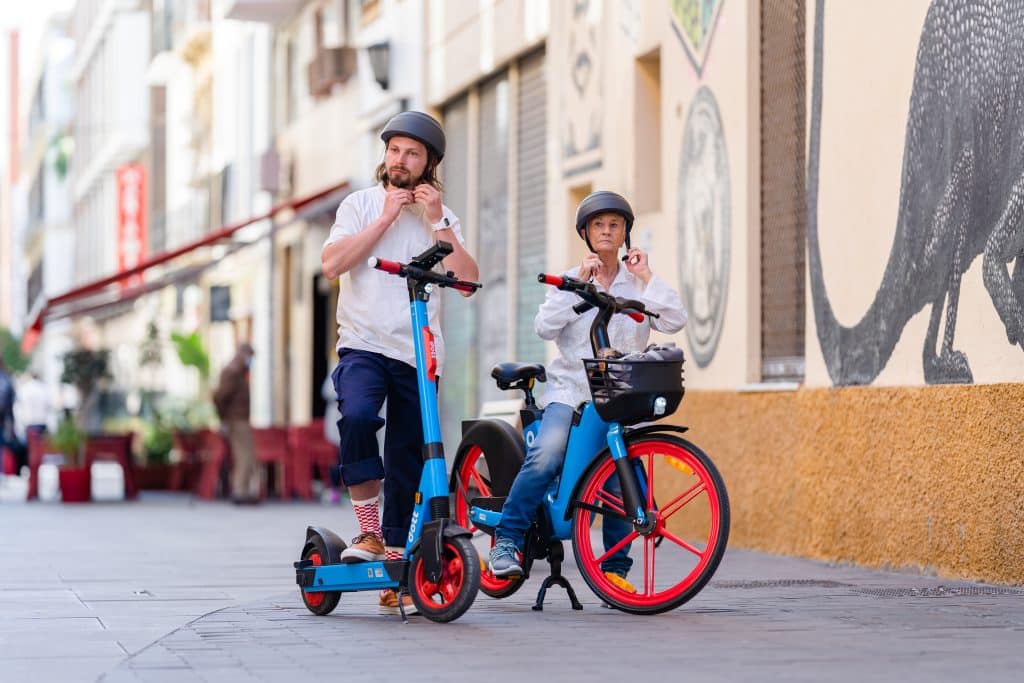Energy crisis sends e-scooter and e-bike use higher
- More than 1 in 3 Dott riders using e-scooters and e-bikes more since the energy crisis
- More than two thirds (69%) who previously used cars are using them less
Dott, the responsible micromobility operator, reports a change in habits from its riders as the energy crisis impacts people’s decisions in how they travel.1 More than one third (36%) of its riders are using shared e-scooters and e-bikes more as a result of the energy crisis, rising to nearly half (49%) of those over 55.
The rise in usage is driven by people cutting down their car use. Over two thirds (69%) of those who previously travelled by car, ride-hailing or taxi have reduced their use of those energy heavy methods.
It’s not just shared micromobility services being used more due to high fuel costs. Nearly half (41%) of Dott users report using bikes (shared or private) more to move around their city since starting to use Dott.
Shared e-scooters and e-bikes are replacing car trips in collaboration with public transport, helping provide a lower cost and more environmentally friendly alternative for longer trips. The majority of Dott riders (63%), connect their Dott ride with public transport, particularly those aged between 18-24 (77%).
Commuting trips are the most popular reason for use, with half (50%) of riders using Dott vehicles to reach work or school, and nearly two thirds (61%) to reach a private residence. Over one third (34%) of riders are now women, an increase of 48% since 2020.2
Henri Moissinac, Co-Founder and CEO, Dott, said: “Our shared e-scooters and e-bikes can help lower the cost of travel, whether for a whole journey or combined with public transport for longer trips. Charged by green energy, and with our operations relying on cargo bikes and e-vans, our fleet of vehicles provide efficient, environmentally friendly and affordable travel, at a time when fuel costs are putting people’s finances under pressure.”
Quality of infrastructure remains a barrier for using shared e-scooters and e-bikes more. The majority of users (65%) say that better road infrastructure would make riding Dott’s vehicles feel safer, rising to nearly three quarters (74%) of women riders.
With fuel prices likely to remain under pressure, Dott’s experience in major cities across Europe shows that the most successful e-scooter and e-bike services include a consistent experience across the city, high density of parking spots, limited no-go and slow zones and high quality infrastructure such as segregated cycle lanes. Introducing these measures can further encourage use of sustainable and low energy transport.
The environment and social impact are at the heart of every business decision at Dott. The micromobility company has set out its goals and progress at ridedott.com/sustainability.
-ENDS-
Notes to editors 1 Based on a survey of 1,402 Dott riders across Europe, in Belgium, France, Italy, Sweden and the UK. 2 23% female respondents in 2020, based on 2020 new rider survey of 868 respondents. 3 Users who used cars, ride-hailing or taxis About Dott Dott is a European micromobility operator founded by Henri Moissinac and Maxim Romain, with the mission to free our cities with clean rides for everyone. Dott currently operates over 40,000 e-scooters and 10,000 e-bikes in top cities in Belgium, France, Israel, Italy, Poland, Spain, Sweden and the UK. Dott has won two of the biggest micromobility tenders in the world, in both Paris and in London. Dott has a staff of over 600, with its main teams located in Amsterdam, London and Paris.
